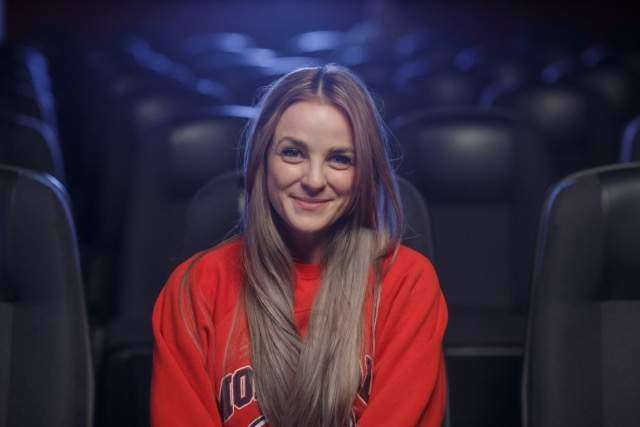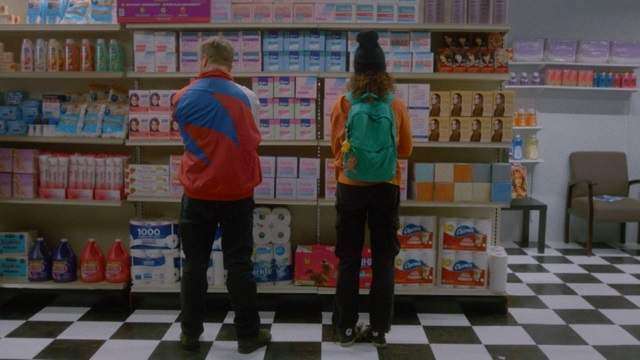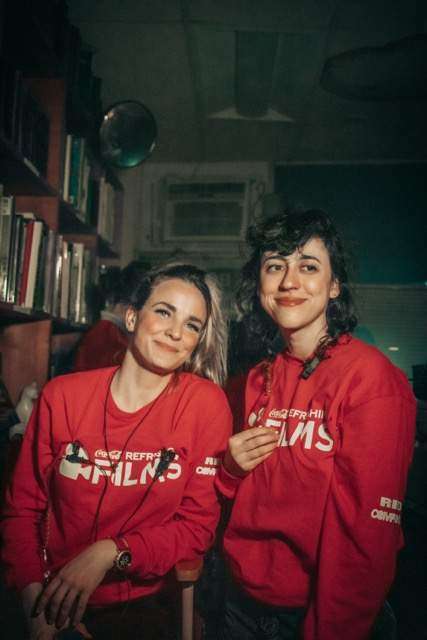
Christine Zivic is pleased by the fact that she’s difficult to define as a filmmaker; it reflects the way that she perceives the world as a place not clearly segmented and categorized. People and art should be considered on an individual basis. Artists of her generation feel less confined by the evaluation of “how” their work is delivered than the impact of the actual message. Full feature films, shorts, commercials; all of these possess the ability to fascinate audiences and Ms. Zivic intends to utilize them all.
She’s shown the range of emotion she can deliver with such productions as D for Daughter, Airplane Mode, and others. Every recognizable artist has their signature style and for Christine, it’s her ability to quickly pull the viewer into what feels like a personal and intimate space. Call it talent, skill, or a gift, this Canadian born filmmaker has something extraordinary and undeniably powerful which is presence and prominent in every project she takes on.


Balancing powerful emotions with thought provoking ambiguity is the potent composition of D for Daughter. This coming-of-age tale set in the recent past is Ms. Zivic’s exploration of a young woman’s early stages of self-definition. A teen girl named D becomes fascinated with her single father’s one-night-stand, Vanessa. Though the film doesn’t shy away from sex and nudity, it is in no way gratuitous. D’s curiosity is tangible. Her fixation on Vanessa is shrewdly vague by the filmmaker, leaving the audience to wonder whether D wants to be her or simply wants her.
By shading things in a way which prompts the viewer to lean into their own inclinations, the story can take on different tones. The editing (also done by Christine) is as vital in achieving this as any of the directing or acting. The subtlety of the story and its presentation is essential to what Christine wanted to impart.
She explains, “D for Daughter was meant for me to explore womanhood; what it means to be a woman, what is femininity, and how a woman comes of age. As such, it felt necessary to juxtapose that with the kind of toxic masculine energy that makes it hard to embrace femininity. Kyle [D’s father] isn’t a super attentive father, he’s kind of a child himself which further forces D to grow up faster than she should.”
One of the most remarkable scenes in the film occurs as D rifles through Vanessa’s purse and then voyeuristically witnesses her semi-nude talking to Kyle in the bedroom. In this “oner” we witness the spark that ignites D’s journey throughout the film. In mere moments we see the progression from wanting to leave quickly, to being curious, to being nervous, to being completely entranced.
Among the numerous awards received by D for Daughter are Best LGBTQ Short and Best Supporting Actress at Festival Émergence de Montréal/Montreal Emerging Film Festival, Best Supporting Actress at Culver City Film Festival®, Best LGBTQ short at London Movie Awards, as well as other festivals including the Hong Kong Indie Film Festival, Vancouver Independent Film Festival, and Los Angeles Diversity Film Festival.

Canadian filmgoers were fond of the Zivic directed/produced Airplane Mode which won a Fan Favorite Award from Cinemark. Distributed in Cineplex theaters across Canada and Landmark theaters, this production was created as part of the Coca-Cola Refreshing Films program. It’s story steers the audience towards positivity in a unique way.
Two female college friends are seen communicating on their phones throughout the day but once they arrive at the theater to watch a film together, the real connection begins. Simple yet speaking loudly, the message focuses on the benefits of real in-person togetherness. The use of camera phones, wide angle lenses, and zooming effects give an emotional scale and diversity to its presentation.
Christine remarks, “I’m not a particularly gimmick-y filmmaker. I have a distinct style that tends towards curated naturalism and realism. I was excited about doing something fun with the camera but I also wanted it to remain within my signature look. Creatively, it was challenging to produce something that told a succinct, clear story without dialogue, while also selling the brand values in an organic way.”
“Our spot is about underlining how magical the world becomes when we finally get off our phones and connect with friends and strangers through a shared experience like the movies. So, it was important to us that the visual language include a strong contrast between the world through the characters’ phones and the world outside their phones.”
Aware of the always present opportunity for communicating a deeper positive message, Ms. Zivic notes, “When the film played at one festival, there were people who shed a tear when they saw the two women holding hands and expressed that they were very touched by this moment. Again, this just goes to show that even the small things can go a long way in terms of representation.”
“I knew going into this project that I had to prioritize the commercial aspect of the piece but I still wanted queer representation and overall diversity where I could get it. We had a very diverse crew. We queer-coded the characters through our costume and accessory choices, but in a way that wasn’t too overt. This is an ad for Coca-Cola and Moviegoing, not being gay, so, I wanted to stay low key about it and keep the characters relatable.”
A number of upcoming commercials will feel the benevolent impact of Christine Zivic’s skillset including a branded film for Reina Rebelde (indie makeup brand) and a fashion film coming out for Shawn Hu (zhua ma https://www.instagram.com/zhua_ma_/ ). Though you’re more likely to have seen her work at industry events such as the Golden State Film Festival (Wrapped Up in You) and the Paris Filmmaker Festival (Adam-which earned Zivic a Best Director award at the Holly Weird Film Festival), Christine is excited about the creative expression afforded her in this shorter-length format.
She doesn’t feel that limitations in running-time prohibit expression and professes, “I think it’s impossible for an artist not to have a point of view. I’d lie if I said my upbringing and life experience didn’t affect the way I told stories, or how I choose to portray certain characters.”